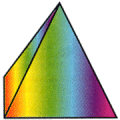|


For People and a Better World !
The ethical application of scientific principles to relevant
aspects of
Sustainable Design.

International Association for Bridge and Structural Engineering
(IABSE)
A
non-profit scientific society, established in 1929, to
promote the international exchange of knowledge in the
field of structural engineering. It has more than 4,400
members in 101 countries, all over the world. Its secretariat
is in Zurich, Switzerland.
1996
IABSE Declaration for Sustainable Development
IABSE
pledges to further the aims of sustainable development
as defined by the United Nations World Commission on Environment
and Development : "sustainable development meets
the needs of the present without compromising the ability
of future generations to meet their own needs."
IABSE recognizes the interdependence of the planet's
diverse ecosystems and their finite capacity to assimilate
changes due to human activities. IABSE urges its
members to identify and act to minimize potentially damaging
environmental impact stemming from their work. In their
professional activities, IABSE desires that its
members promote :
- the
full understanding of the interdisciplinary actions
required to sustain and optimise the natural, built
and socio-economic environments ;
-
the increased use of renewable and recycled
non-renewable materials in the construction and operation
of structures ;
-
the conscientious assessment of the environmental
impact of projects, basing recommendations on environmental
soundness.
IABSE
members will urge the incorporation of environmental
objectives into design, planning, construction and operational
criteria. IABSE members will continue to educate
themselves and their students on issues relating to sustainable
development, and to freely transfer this knowledge to
society. Finally, IABSE strongly encourages its
members to decline association with engineering activities,
in developed and in developing countries, that are contrary
to sustainable development.
IABSE
Working Commission 7 - Sustainable Engineering

International
Network of Engineers and Scientists for Global Responsibility
(INES)
An
independent non-profit organization concerned about the
impact of science and technology on society. INES was
founded in 1991 at an international meeting in Berlin,
Germany, attended by 1700 people. INES' efforts focus
on disarmament and international peace, ethics, justice
and sustainable development. INES is affiliated with the
United Nations (Department of Public Information) as a
Non-Governmental Organization (NGO) .
INES
Appeal to Engineers and Scientists, and Associated Pledge
INES Global
 cjw
cjw
-
Introduction to Sustainable Construction

CIB
Report 225 : Sustainable Development & The Future
of Construction
Published May 1998
14
National Reports from around the world, with an
International Synthesis.

European
Charter on Sustainable Design & Construction
Adopted
November 1998
Expands
and strengthens, but preserves the legal intent
of, the 1992 Rio Declaration on Environment
and Development. References extensive legal base
in the European Union. Also
contains a guideline framework on 'social inclusion',
and a glossary of terms and definitions.

Construction
Related Sustainability Performance Indicators
Introduction
to the Framework.

Harmonized
E.U. Sustainability Label
Gives
direction to the use of Performance Indicators in
Civil Engineering / Service / Infrastructural Works.
Fundamental
Matrix of Performance Indicators
Managing
the information generated by Indicators.
Environmental
Impact
| Any
effect caused by a given activity on the environment,
including human health and safety (and welfare),
flora, fauna, soil, air, water, (and especially
representative samples of natural ecosystems),
climate, landscape and historical monuments
or other physical structures or the interactions
among these factors ; it also includes effects
on cultural heritage or socio-economic conditions
resulting from alterations to those factors.
|
1994
Energy Charter Treaty (EU)
and 1972 Stockholm Declaration on the Human
Environment (UN) |
- Issues
for Consideration in Sustainable Engineering
| - |
A
value system in engineering ;
|
| - |
Ethical
practice ;
|
| - |
Integration of engineering disciplines (for a
start) ;
|
| - |
Re-engineering
the process of structural design ;
|
| - |
Terminology
;
|
| - |
Minimizing
damaging / harmful 'environmental impacts' ;
|
| - |
Developing
engineering related sustainability performance
indicators ;
|
| - |
De-construction
(organized demolition & removal) ;
|
| - |
Re-use
& re-cycling of construction waste ;
|
| - |
Sustainable
maintenance and use / operation ;
|
| - |
Designing
for adaptability, i.e. extension of life cycle
;
|
| - |
Directing
emphasis towards 'serviceability limit states'
........
|
see
example here ;
|
| - |
Life
cycle analysis of engineering related materials,
components and systems, etc ;
|
| - |
New
working methods in engineering design, construction
and use / operation ;
|
| - |
A
targeted research agenda.
|
-
IABSE
Working Commission 7 : Sustainable Engineering
Field of Activity within IABSE :
This
Working Commission is, in its field of activity, responsible
for the active support of the objectives of the Association.
It supports, in this respect, all other committees and
working commissions of the Association.
Mission
:
The
mission of Working Commission 7 is to implement the
Declaration adopted by the
IABSE Permanent Committee in 1996. Towards that end,
WC 7 will develop practical information about sustainability
relevant to structural engineering worldwide. WC 7 will
then disseminate this information by any and all means,
electronic or otherwise, to the IABSE Membership and
the engineering community at large - with the aim of
ensuring that the concept of sustainability becomes
an integral part of every engineer's thinking and actions.
Meetings
of Working Commission 7 :
Malta
- March 2001
Click
here to download Minutes
(PDF File, 129kb)

|
You will need
Adobe Acrobat Reader to view the PDF files. Accessibility
of PDF for people with disabilities |
|




